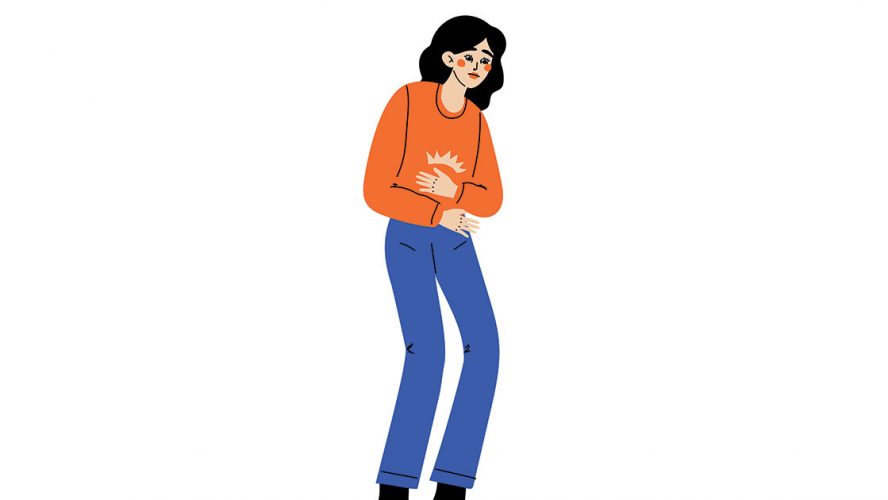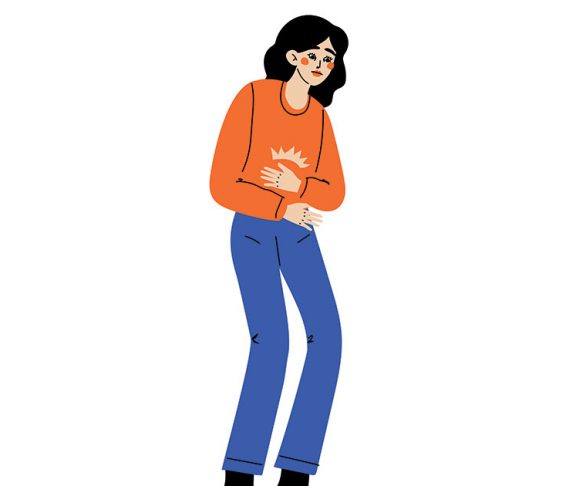You’ve been getting your period for years, and you know what’s going on with your body and what’s best for you. Well, then definitely do not keep reading. You’re good.
Oh, you’re still here. Thought you might be. The fact is, there’s probably a lot of information you didn’t even realize you missed since way back when we said we “had” our period (not like the kids today who are “on” their period).
Turns out, lessons we learned decades ago were only part of the story. So if you left high school more than five seconds ago, here’s a little catch-up.
The truth about tampons
Menstrual products you buy in most stores follow a pretty standard color convention. Look at the stripe, swirl, or lettering on your pads and tampons. Magenta and green generally indicate a “super” size. Orange and purple mean they are extra absorbent and labeled for “overnight.” And “regular” sizes and absorbencies are usually yellow or blue. When shopping in a new store or wanting to compare products, knowing the coloring system is a huge help. If you regularly send a man to the store to buy items for you, this will blow his mind.
Pads and tampons can contain questionable ingredients. Consider these two facts: first, that we use an estimated 16,000 period products in our lives, and second, that the FDA doesn’t require companies to offer a comprehensive list of what’s in them, so most don’t. In order to avoid chemicals, if you can find and afford organic, that might be the best choice. New York has become the first state to mandate ingredients be listed on packages, but it could be 2021 before you see them.
Alternate period products
A menstrual cup can be very revealing. In addition to saving you a ton of money – one cup lasts ten years and can cost as little as $20, while pads and tampons for a decade will set you back nearly $1000 – and helping to save the planet with no waste to the landfill, a menstrual cup will tell you a lot about your flow. There’s no guesswork with cups; you can see how much fluid is collected, and cups allow us to become a whole lot more familiar with our own bodies.
Happy to stick with tampons? OK, but you may not be helping yourself if you always use the same size tampon. Dr. Jennifer Lublin, an OB-GYN in private practice in New Jersey, says using a tampon that is too large can actually cause discomfort. If flow is lighter than normal, the vaginal wall can become irritated when the tampon is removed. Dr. Lublin recommends a bit of Vaseline to make things go more smoothly and using the smallest tampon to get the job done.
Also, tampons expire. They are not sterile and are only built to last about five years in their package before the material can break down and bacteria can grow. And that handful in the bottom of your bag, not entirely sealed, mixed in with the open granola bar or the make-up… you probably should toss those, too.
Birth control
Birth control pills can be used to regulate periods and decrease flow and cramping. St. Louis OB-GYN Dr. Wendi Carns says, “Any birth control pill has the added benefit of acting like preventative chemotherapy. If you are on the pill for ten years, you decrease your risk for ovarian cancer by 50 percent, and you also decrease your risk of uterine cancer.”
But, Dr. Carns adds, “If you aren’t on anything and skip cycles, you can be at risk for a precancer or cancer of the uterus. If that’s happening, you need a work-up, especially if you are over 35, obese, or haven’t had kids.”
Pregnancy
Gynecologists say younger women are very unlikely to get pregnant if they have sex during their periods, but Dr. Lublin says women in their late 30s and early 40s should never use the rhythm method. “At any time, you could ovulate earlier than you have in the past, even if you’re a regular 28-day cycle gal.”
And maybe you just don’t want to worry about tampons, pads, and period sex. Both Dr. Lublin and Dr. Carns agree that it is fine to use birth control to skip your period. Dr. Lublin says the only reason there is a week of placebo pills in a birth control pack is to mimic a regular cycle. According to Dr. Carns, “Getting a regular period is one way to know whether you are pregnant.” And you should, of course, talk with your doctor about the best way to handle skipping your period altogether if it’s a good option for you.

